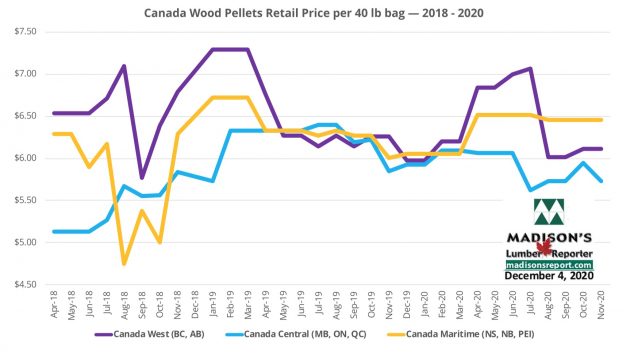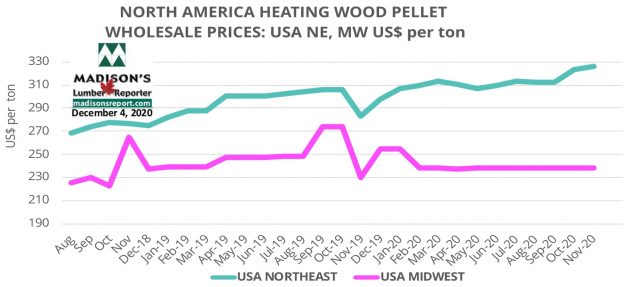
New funding for Alberta biomass fuel projects; global biomass capacity to grow by 16%
December 16, 2020
By Madison's Lumber Reporter

Alberta announces $150 million in funding for emission-cutting projects
The government of Alberta announced in early November it will provide $100 million in funding for Emissions Reduction Alberta’s (ERA) Shovel-Ready Challenge through the Technology Innovation and Emissions Reduction fund. An additional $50 million will also be available from the federal Low Carbon Economy Leadership Fund. Successful applicants are eligible for up to $15 million, and projects receiving funding must begin within 60 days of being approved and must include commercial demonstration or deployment of technologies in operational environments.
Eligible projects include mobility and transportation solutions, low-emission electricity generation, high-efficiency equipment, optimization of agriculture and forestry operations, methane emissions management, waste heat utilization, low carbon industrial heat, fuel switching, alternative feedstocks, carbon capture, utilization, and sequestration, and more. The application deadline is Tuesday, Dec. 22, 2020.
Bioenergy usage expected to grow
In a report released in early November the International Energy Agency (IEA) detailed the growing role of bioenergy in energy production worldwide. The IEA Renewables 2020 report showed that global biomass electricity production grew by 8.5 GW in 2019, making 2019 the second-highest increase on record. China accounted for the largest proportion – 60 per cent – of new biomass capacity in 2019, mostly in the form of energy-from-waste projects. Japan was second in new biomass capacity at one-tenth the size of the Chinese market.
The report forecasts a decline of 16 per cent in bioenergy capacity additions in 2020 due to ongoing effects from the COVID-19 pandemic. Ten nations accounted for 90 per cent of major deployments of biomass power projects in 2019, and the largest markets – China, Brazil, Japan, and the United Kingdom – have been severely affected by the pandemic. Delays in biomass project delivery have already occurred in those countries and are expected to continue. At the feedstock level, widespread supply disruptions of biomass fuels for existing projects have not been observed according to the report.
Print this page


